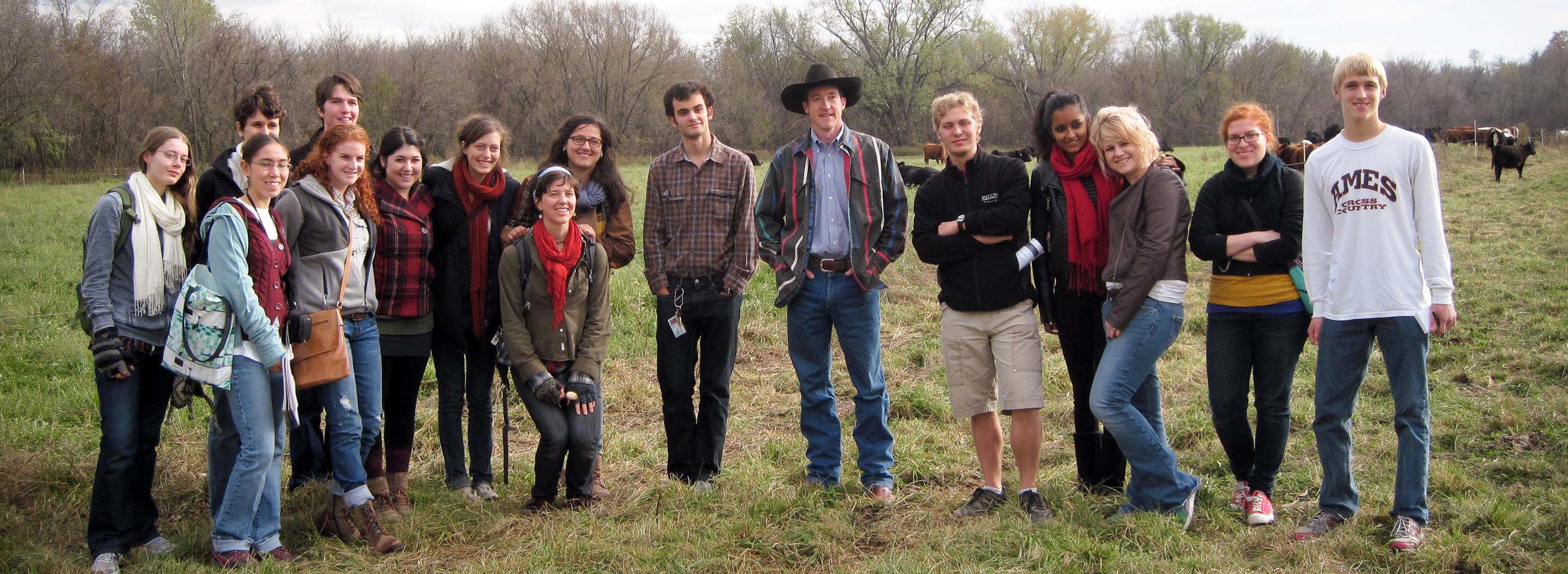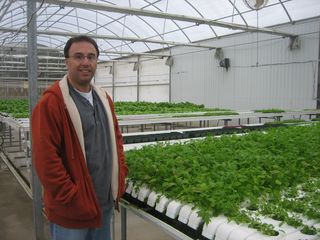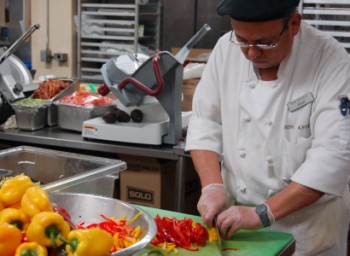In her monthly post on The Atlantic's Food Channel, BAMCO's Helene York discusses barriers institutions like colleges and universities face when purchasing local food. You may be surprised by her take on some of the more – and less – significant obstacles.

The Bon Appétit Blog
+ Blog Categories
Adrian of Montebello Farm
- Blog
East Coast Fellow Carolina and I visited Montebello Farm, where we met Adrian Albor, a young farmer. He told us about what he learned working as a farmworker after coming to the United States from Michoacán, México. Today, he is the farm manager of 18 acres of diversified organic vegetables. Here is a vlog about Adrian of Montebello Farm.
Seriously. Where Does Our Food Come From?
- Blog
Check out Bon Appétit Management Company’s series on the business of sustainable agriculture on TriplePundit.com, an innovative new-media company for the sustainable business community. In our most recent post, “Seriously. Where Does Our Food Come From?” East Coast Fellow Carolina Fojo explores the complexity of the food chain and the challenges we face today in trying to source food responsibly. Read the whole post here.
East Coast Fellow at Duke University!
- Blog
East Coast Fellow at Duke University! Two weeks ago was college visit number three, Duke University. On Monday night, I went to the Dusdac meeting (Duke’s Dining Committee) and met with a lively, rambunctious group of students. They asked questions like “Just to play devil’s advocate, WHY should I care about those hens anyway?” Another highlight from the Dusdac meeting was that I got to talking with an Assistant Professor/Nutritionist at Duke (who had attended the meeting), and she liked my presentation so much she asked me to come back and give a lecture in one of her classes! Tuesday night was the Story Behind the Food event. The group was extremely attentive, and there was a nice range of interests—animal rights, reusable containers on campus, an enviro awareness group, on-campus gardens, etc. They asked well-informed, intelligent questions, and Nate […]
Bizymoms.com Interviews BAMCO VP Maisie Greenawalt
- Blog
Bizymoms.com recently interviewed VP Maisie Greenawalt about Bon Appétit Management Company's commitment to sustainable food. The site receives over 8 million page views per month, providing Maisie (and BAMCO) with a great opportunity to discuss the importance of low carbon dining, eating local, sustainable seafood and organic agriculture. For the full interview, click here.
“Food Week” at the University of Pennsylvania!
- Blog
02/12/10 Last week was “Food Week: Eat to Live” at the University of Pennsylvania. The students at Penn truly stepped up to the plate, not only helping to coordinate one event, but 6!! It was truly a spectacular week, full of delicious food and passion for food issues. Here’s how it all happened: In December I was connected with Professor Mary Summers, who teaches “Politics of Food”. Professor Summers, in turn, connected me with about 20 very determined student activists—most of them didn’t know each other, but all cared about different food issues. A few of them had been throwing around the idea of doing an entire week of Food issues at Penn, but nothing concrete had yet materialized. We did a giant conference call; I told them I’d be there the week of Feb 1—and Food Week […]

Bon Appétit Fellows Kick Off Tour!
- Blog
After months of planning, the two other Fellows and I kicked off our “Story Behind the Food” tour last week. Over the next few months, we hope to visit with hundreds of students who eat in Bon Appétit college cafés every day to spread the word about BAMCO sustainability initiatives like Farm to Fork, the Low Carbon Diet, and our work with the Coalition of Immokalee Workers in Florida. My first two stops were LeTourneau University in Longview, TX and St. Edwards University in Austin, TX. At LeTourneau, a small but enthusiastic group of students on the school Senate joined me, BAMCO General Manager Doris Wilson and Executive Chef Paul Riley for my presentation. They were very excited about the Student Garden Guide and also wanted to follow up about how they can educate their peers on labor and environmental […]

The People at Bon Appétit
- Blog
As the East Coast Fellow for Bon Appétit Management Company, I recently went to Washington University in St. Louis to work on a project related to sustainable food sourcing. While there, I realized it takes a lot of people to make “sustainable food” a reality. So, here’s a little tribute to the Bon Appétit folks at WashU, working to get good food on students’ plates. Enjoy!
Farming Internships: Vital or Illegal? The Answer is Both.
- Blog
Check out Bon Appétit Management Company’s series on the business of sustainable agriculture on TriplePundit.com, an innovative new-media company for the sustainable business community. In our 9th post, "Farming Internships: Vital or Illegal? The Answer is Both.", Midwest Fellow Dayna Burtness explores the legality and necessity of farming internships. Read the whole post here.
Bon Appetit nourishes Silicon Valley cafeterias with locally-grown food
- Blog
In this video on CBS Interactive's SmartPlanet, take a tour of Yahoo's kitchen to see a number of sustainability initiatives in action. Innovations include locally farmed food, our Low Carbon Diet Calculator that measures food intake against carbon footprint, and a food dehydrator that converts excess food scraps into mulch.
